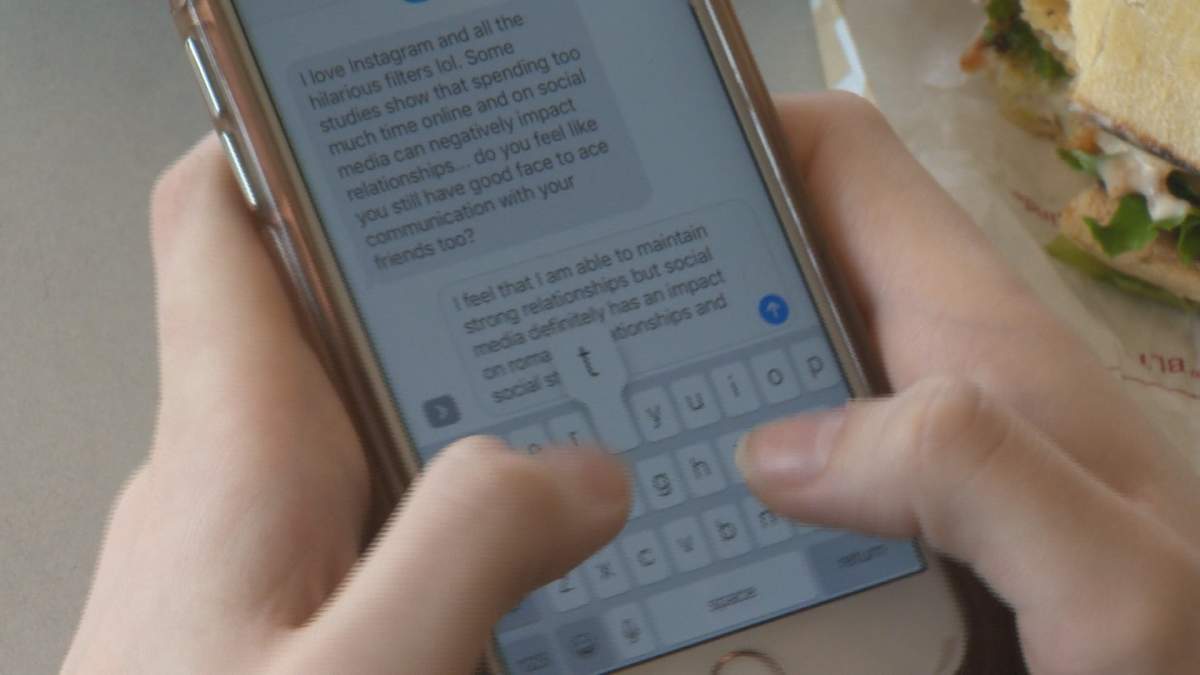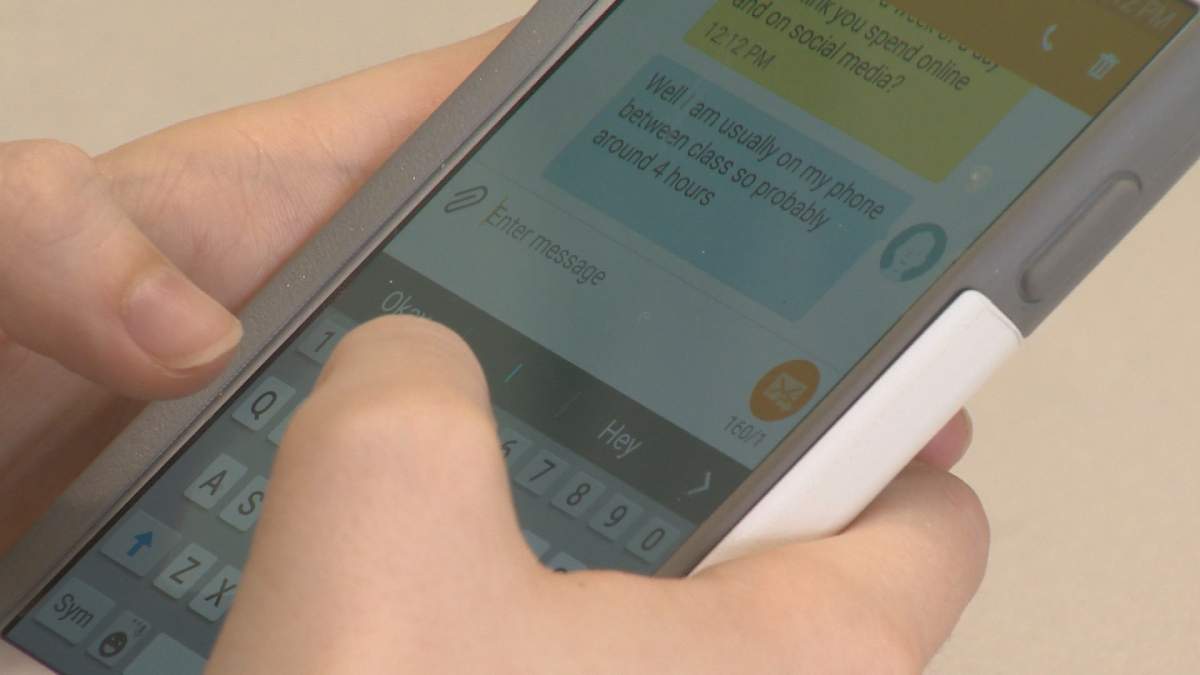According to the CRTC’s Communications Monitoring report for 2016, Canadians under 30 spend more time and money on mobile wireless devices like cellphones, than any other age group.

The report says device ownership and data consumption are increasingly popular among younger Canadians, but experts say too much time spent online and on social media can harm real life relationships.
Dalhousie University’s student affairs psychologist David Mensink said statistics aside, it’s easy to see how frequently people are online.
READ MORE: Internet, social media addiction linked to mental health risks: study
He said there’s not enough face-to-face interaction amongst youth when they’re always on their phones and laptops.

Get weekly health news
“Most of the information that we get interpersonally is from looking at somebody and checking out their body language and much less is the words,” Mensink said.
When it comes to texting and the Internet, he said it’s only words on a screen.
“That doesn’t really communicate the tonal qualities and also the behavioural qualities, and that, in fact, can interfere with the level of communication and the depth of the relationship,” Mensink said.
READ MORE: High Internet use leads to low self-esteem: Study
He said interpersonal relationships are important during group projects and in the workforce.
“A lot of the programs are having students work more and more in small groups in an interpersonal way. Well, if you’ve got a small group and you’ve got each person on their cellphone, it’s actually not going to develop the types of interpersonal skills that we want to develop for people to enter the world of work,” Mensink said.
Romantic relationships, according to Mensink, can also be strained if there’s not enough real communication.
“In a close, romantic relationship, I think it’s great to use texts — we can say ‘ya know, ‘I’ll see you in 10 minutes,’ or ‘I’m on the road right now,’ but if we’re communicating deep, emotional kinds of feelings to each other, that’s where a lot of miscommunication can occur using a cellphone and texts.
READ MORE: Millennials and psychology: the effects of social media
He said some junior high schools require students to have “digital detox” weeks when students and teachers are asked to leave their phones at home to see what life is like without phones at school.
“I think that’s a great way to educate and teach kids to be more self-aware of things like that,” Mensink said.
He said in younger children, cellphone radiation can interfere with brain development, and said too much stimulation before bed can cause sleep problems in people of any age. He said the best thing to do is put phones and devices down, an hour before bed.
Mensink said there’s instant gratification with texting and using social media, that there’s no longer deferred gratification.
“Technology, Internet, cellphones — let’s be honest, they’re with us and I think they will always be with us. I think what we need to do is just with any other technological advance, I think we need to learn how to use it to our benefit,” Mensick said. “So yes, it’s with us but we can certainly develop a judicious use of it and that’s what I would recommend.”










Comments
Want to discuss? Please read our Commenting Policy first.